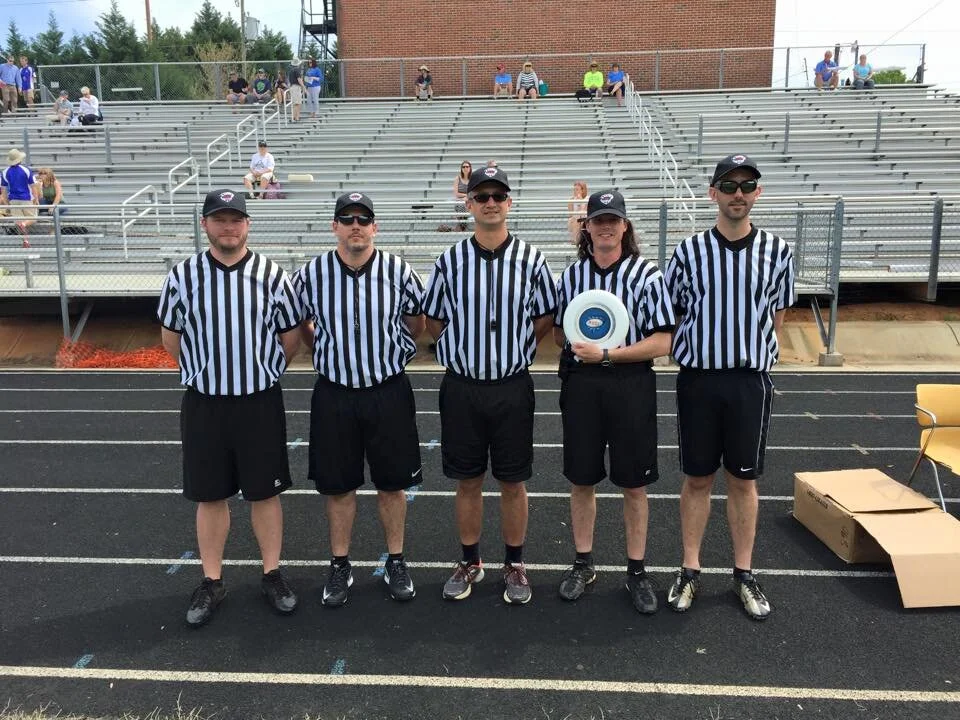Making it Official
Referee crew for the first season of the Charlotte Express (RIP). Those aren’t high-waisted pants, I have a radio belt on.
One of the great aspects of ultimate is that it is traditionally player-policed. Which means there are no refs, all calls are made by the players and discussed and decided on the field that way. The Spirit of the Game is a huge part of playing and keeping it competitive and fun. Yes, it can get chippy and sometimes a call can end up freezing a game while players argue over it. But for the most part this has worked amazingly well for decades.
As the sport progressed, there came a push to get it included in the Olympics. Suddenly the lack of any sort of officials became a problem: team sports in the Olympics need to have some kind of referees for some reason. (Let me be clear, I’m possibly getting some of this wrong, but the gist is there). So the governing body in the US, called USA Ultimate (USAU) introduced the Observer into tournaments.
An Observer was there to keep the game moving, call “in” and “out” and goals and resolve disputes. If two players couldn’t agree on a call, an Observer could make the final decision. They are not active refs, but serve the purpose of keeping games from being stalled out by arguments. The role of Observers has evolved over time as well.
Then in 2010 the American Ultimate Disc League (AUDL) was formed as a professional league. (Technically it’s semi-pro as only a handful of players have found ways to make enough money to not have a day job.) They changed a lot about the game: the field is bigger, games are timed, the stall count is 7 seconds instead of 10 and there are active referees among other tweaks.
All these rules are supposed to add up to more scoring, a faster pace and a more TV-friendly product. And it seems to be working. The league is still going strong ten years later and has nationally televised games.
In 2015 I joined the league as Head Ref for the new Charlotte team, and have reffed every season since then. It’s definitely a different experience being on a field and not chasing the disc.
But one thing is certain: it takes just as much fitness to ref as it does to play. Players go all-out during points, but then usually sub out before coming back on. Refs are on field the entire game. We don’t have to run as fast most of the time, but I cover between 5-8 miles a game. Add in the mental aspect of the job itself and it becomes very tiring.
And let’s face it - refs have to keep up with elite athletes who are all much faster than we are. Proper positioning helps us stay in the play, but fitness helps us keep up as best we can.
As you get physically tired, your mental prowess diminishes. When playing and points go on for several minutes, it becomes harder and harder to score because everyone starts reverting to bad decision making. A ref cannot afford any mental lapses, so keeping physically fit to maintain mental clarity is very important. Especially at the end of games.
So my training helps keep me fit for ultimate itself, but also for the games I referee.

